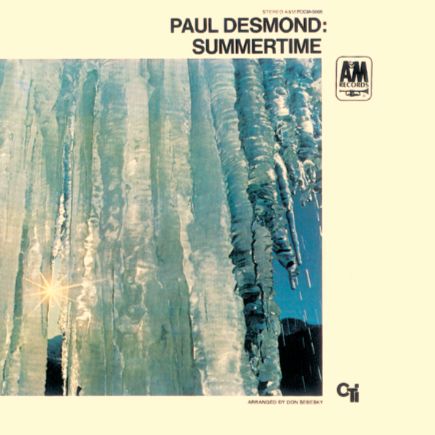Struttin’ With Some Barbecue: swing de parade et alchimie collective
Composé en 1927 par Lil Hardin (épouse de Louis Armstrong), avec des paroles ajoutées plus tard par Don Raye, Struttin’ With Some Barbecue est l’un des joyaux du répertoire de l’ère New Orleans.
Derrière ce titre évocateur, entre pique-nique populaire et marche urbaine en fanfare, se cache une pièce emblématique du style hot jazz, à la croisée de l’élan collectif et de la virtuosité individuelle. Le titre, souvent interprété de façon instrumentale, repose sur une structure en 32 mesures et un thème syncopé qui évoque à la fois la marche festive et la danse.
Louis Armstrong, mari de la compositrice, a prétendu après le divorce avoir cédé les droits d’auteur de Struttin’ With Some Barbecue à sa femme de l’époque. En 1967, il a déclaré que l’idée lui était venue en 1927 lors d’un barbecue avec le batteur Zutty Singleton. La même année, Lil Hardin a rappelé qu’elle avait gagné un procès concernant la paternité de l’œuvre.
Symbole d’un moment charnière du jazz, Struttin’ With Some Barbecue s’est imposé comme un standard incontournable, repris par des générations de musiciens dans des styles allant du traditional jazz au swing moderne.
Un standard en bossa: Desmond, la grâce du métissage sonore
Le 20 novembre 1968, Paul Desmond enregistre une version audacieuse et envoûtante de Struttin’ With Some Barbecue, rebaptisé ici Samba With Some Barbecue. Cette relecture bossa nova figure sur l’album Summertime, un projet orchestral ambitieux où Desmond explore avec finesse les passerelles entre le jazz classique et les rythmes brésiliens.
Le saxophone alto de Desmond, à la sonorité toujours feutrée et chantante, flotte avec grâce, apportant une touche aérienne à une orchestration dense mais jamais écrasante. La section rythmique réunit Herbie Hancock au piano, Ron Carter à la basse, et, à la batterie, deux percussionnistes d’exception qui alternent selon les titres de l’album — Leo Morris (futur Idris Muhammad) et le Brésilien Airto Moreira. Ce dernier ajoute une couleur authentiquement brésilienne à l’ensemble, intégrant subtilement tambourins, cloches et textures percussives typiques de la samba et de la bossa nova.
Avec Samba With Some Barbecue, Paul Desmond conserve une ligne claire, fluide, où l’inventivité repose sur l’élégance du phrasé et la maîtrise du silence. Pour l’anecdote, Desmond accepte même d’enregistrer un nouvel air des Beatles, Ob-La-Di, Ob-La-Da, dans le style samba, en citant Hey Jude au passage (il est très possible qu’il ait été attiré par le personnage principal du texte, un certain Desmond).
Struttin’ With Some Barbecue: swing de desfile y alquimia colectiva
Compuesta en 1927 por Lil Hardin (esposa de Louis Armstrong), con letra añadida más tarde por Don Raye, Struttin’ With Some Barbecue es una de las joyas del repertorio de la era de New Orleans.
Detrás de este título evocador —entre pícnic popular y desfile urbano con fanfarria— se esconde una pieza emblemática del estilo hot jazz, donde confluyen el impulso colectivo y la virtuosidad individual. El tema, a menudo interpretado instrumentalmente, se basa en una estructura de 32 compases y en un motivo sincopado que evoca tanto la marcha festiva como el baile.
Louis Armstrong, esposo de la compositora, afirmó tras su divorcio haber cedido los derechos de autor de Struttin’ With Some Barbecue a su entonces esposa. En 1967, declaró que la idea surgió en 1927 durante una barbacoa con el baterista Zutty Singleton. Ese mismo año, Lil Hardin recordó que había ganado un juicio que reconocía su autoría de la obra.
Símbolo de un momento crucial en la evolución del jazz, Struttin’ With Some Barbecue se consolidó como un estándar imprescindible, reinterpretado por generaciones de músicos en estilos que van desde el jazz tradicional hasta el swing moderno.
Un estándar en bossa: Desmond, la gracia del mestizaje sonoro
El 20 de noviembre de 1968, Paul Desmond graba una versión audaz y cautivadora de Struttin’ With Some Barbecue, rebautizada aquí como Samba With Some Barbecue. Esta reinterpretación en clave de bossa nova forma parte del álbum Summertime, un ambicioso proyecto orquestal en el que Desmond explora con sutileza los puentes entre el jazz clásico y los ritmos brasileños.
El sonido del saxofón alto de Desmond, siempre aterciopelado y melódico, flota con gracia sobre una orquestación densa, pero nunca abrumadora. La sección rítmica reúne a Herbie Hancock al piano, Ron Carter al contrabajo y, en la batería, a dos percusionistas excepcionales que se alternan según los temas del álbum: Leo Morris (futuro Idris Muhammad) y el brasileño Airto Moreira. Este último aporta una autenticidad rítmica singular, incorporando sutilmente panderetas, campanas y texturas percusivas propias de la samba y la bossa nova.
Con Samba With Some Barbecue, Paul Desmond mantiene una línea clara y fluida, en la que la inventiva se basa en la elegancia del fraseo y el dominio del silencio. Como anécdota curiosa, Desmond aceptó incluso grabar un tema de los Beatles, Ob-La-Di, Ob-La-Da, en estilo samba, citando al paso Hey Jude (tal vez seducido por el nombre del protagonista de la letra: un tal Desmond).
Struttin’ With Some Barbecue: swing da parata e alchimia collettiva
Composta nel 1927 da Lil Hardin (all’epoca moglie di Louis Armstrong), con testi aggiunti successivamente da Don Raye, Struttin’ With Some Barbecue è uno dei gioielli del repertorio dell’epoca New Orleans.
Dietro un titolo evocativo —tra picnic popolare e parata urbana in fanfara— si cela un brano emblematico dello stile hot jazz, dove slancio collettivo e virtuosismo individuale si intrecciano. Il pezzo, spesso interpretato in forma strumentale, si basa su una struttura di 32 battute e un tema sincopato che richiama tanto la marcia festosa quanto la danza.
Louis Armstrong, marito della compositrice, affermò dopo il divorzio di aver ceduto i diritti d’autore di Struttin’ With Some Barbecue alla sua allora moglie. Nel 1967 dichiarò che l’idea gli era venuta nel 1927 durante un barbecue con il batterista Zutty Singleton. Nello stesso anno, Lil Hardin ricordò di aver vinto una causa che ne riconosceva la paternità.
Simbolo di una fase cruciale nella storia del jazz, Struttin’ With Some Barbecue è diventato uno standard imprescindibile, ripreso da generazioni di musicisti in stili che spaziano dal jazz tradizionale allo swing moderno.
Uno standard in bossa: Desmond, la grazia del meticciato sonoro
Il 20 novembre 1968, Paul Desmond registra una versione audace e seducente di Struttin’ With Some Barbecue, ribattezzata per l’occasione Samba With Some Barbecue. Questo rifacimento in chiave bossa nova compare nell’album Summertime, un progetto orchestrale ambizioso in cui Desmond esplora con raffinatezza le connessioni tra jazz classico e ritmi brasiliani.
Il sax alto di Desmond, dal timbro sempre vellutato e cantabile, fluttua con grazia su un’orchestrazione densa ma mai soffocante. La sezione ritmica riunisce Herbie Hancock al pianoforte, Ron Carter al contrabbasso e, alla batteria, due percussionisti d’eccezione che si alternano nei diversi brani: Leo Morris (futuro Idris Muhammad) e il brasiliano Airto Moreira. Quest’ultimo aggiunge un’autenticità tipicamente brasiliana, integrando con discrezione tamburelli, campanelli e texture percussive caratteristiche della samba e della bossa nova.
Con Samba With Some Barbecue, Paul Desmond mantiene una linea chiara e fluida, dove l’inventiva poggia sull’eleganza del fraseggio e sul controllo del silenzio. Per la cronaca, Desmond accettò anche di registrare una canzone dei Beatles, Ob-La-Di, Ob-La-Da, in stile samba, citando ironicamente Hey Jude — forse attratto dal personaggio del testo, un certo Desmond.
Struttin’ With Some Barbecue: parade swing and collective chemistry
Composed in 1927 by Lil Hardin (then wife of Louis Armstrong), with lyrics later added by Don Raye, Struttin’ With Some Barbecue stands out as one of the gems of the New Orleans era repertoire.
Behind its evocative title—part street parade, part backyard picnic—lies an emblematic piece of hot jazz, where collective energy and individual flair meet. Often played instrumentally, the piece is built on a 32-bar form and a syncopated theme that evokes both festive march and dance.
Louis Armstrong, Hardin’s husband at the time, later claimed he had given the rights to Struttin’ With Some Barbecue to her after their divorce. In 1967, he stated that the idea came to him during a 1927 barbecue with drummer Zutty Singleton. That same year, Lil Hardin recalled she had won a lawsuit confirming her authorship of the piece.
A symbol of a pivotal moment in jazz history, Struttin’ With Some Barbecue has become a timeless standard, revisited by generations of musicians in styles ranging from traditional jazz to modern swing.
A standard in bossa: Desmond and the grace of sonic crossovers
On November 20, 1968, Paul Desmond recorded a bold and captivating version of Struttin’ With Some Barbecue, reimagined here as Samba With Some Barbecue. Featured on the album Summertime, this bossa nova reinterpretation is part of an ambitious orchestral project in which Desmond delicately explores the meeting points between classic jazz and Brazilian rhythms.
Desmond’s alto saxophone, as velvety and lyrical as ever, floats gracefully above a rich orchestration that never overwhelms. The rhythm section brings together Herbie Hancock on piano, Ron Carter on bass, and two outstanding drummers who alternate across the album’s tracks — Leo Morris (later known as Idris Muhammad) and Brazilian percussionist Airto Moreira. The latter brings an authentic Brazilian touch, subtly layering tambourines, bells, and percussive textures drawn from samba and bossa nova traditions.
With Samba With Some Barbecue, Paul Desmond maintains a clear and fluid line, where inventiveness stems from the elegance of phrasing and the art of restraint. As a curious footnote, Desmond even agreed to record the Beatles’ Ob-La-Di, Ob-La-Da in samba style, briefly quoting Hey Jude — possibly intrigued by the character named Desmond in the song’s lyrics.


